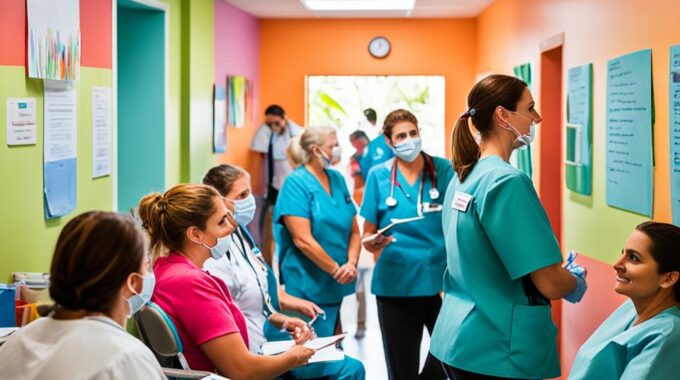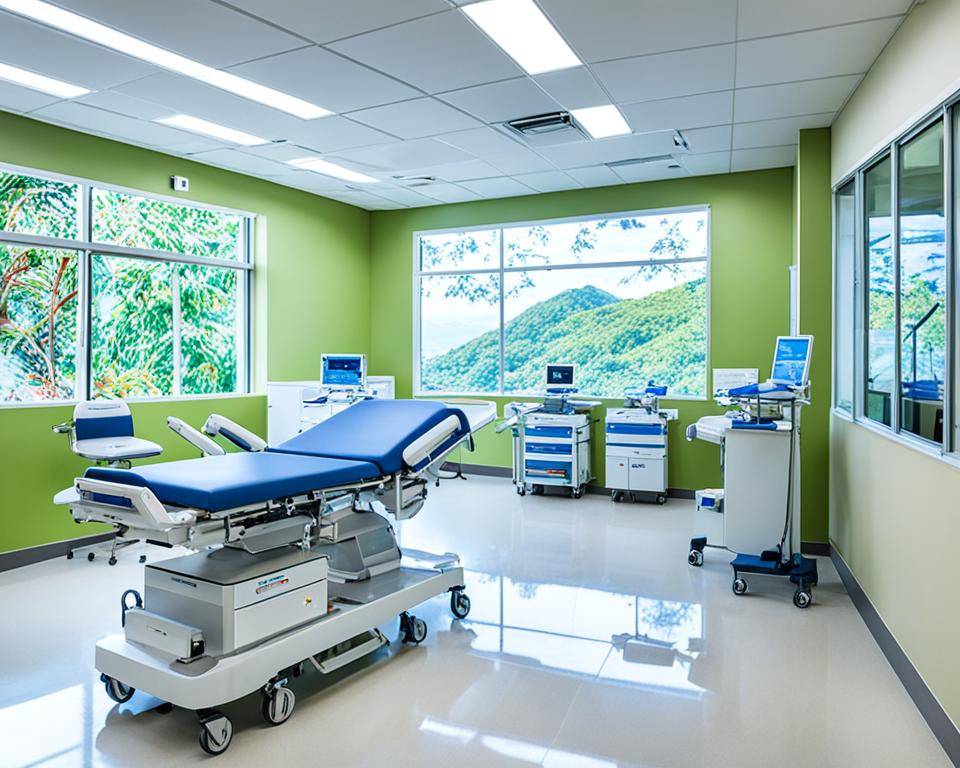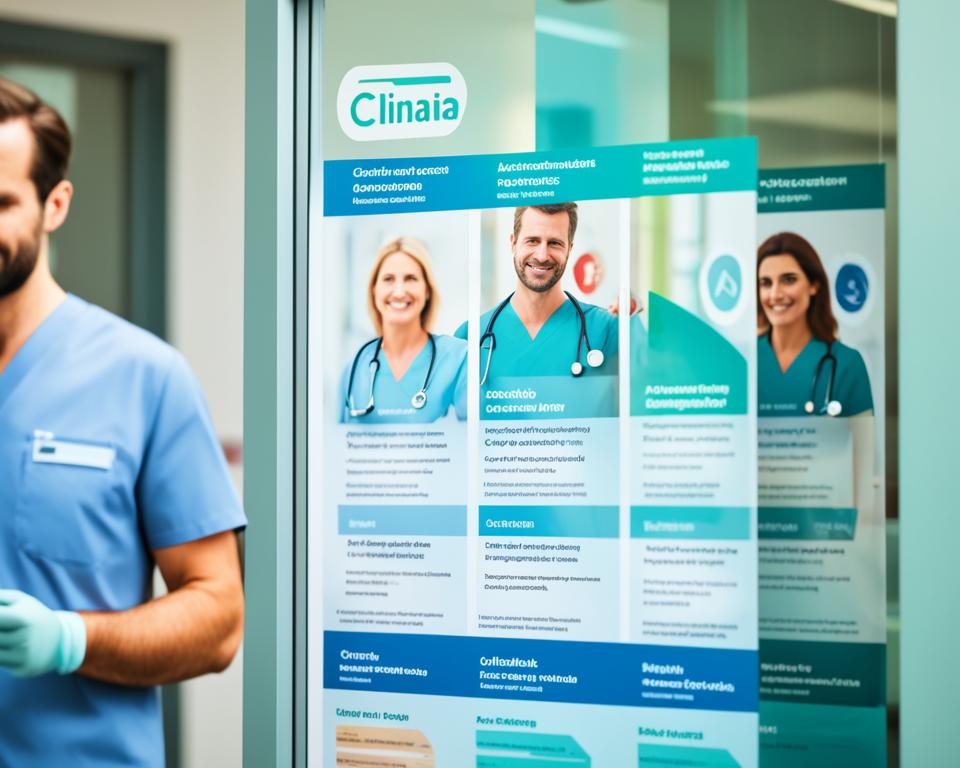GAP Investments provides tailored financing solutions for investors in Costa Rica, understanding the unique needs…

How Good are The Public Clinics in Costa Rica – Good For Expats?
Costa Rica stands out for its strong and well-funded public healthcare. It features a wide network of public clinics and hospitals. These are available across the country, making healthcare accessible. The system is called the Caja Costarricense de Seguro Social (CCSS) or “Caja”. It provides a range of medical services to both Costa Rican citizens and legal residents. This makes it an excellent healthcare option for not only locals but also expats.
The Caja runs 30 public hospitals and more than 250 clinics in Costa Rica. These institutions offer a range of services and health facilities. They provide everything from simple check-ups to complex surgeries. You can also find vital preventive care in these places. This includes basic health education and immunizations.
The public healthcare system in Costa Rica is widely respected. However, navigating it can be hard if you don’t speak Spanish. Hospital settings might seem a bit chaotic to newcomers. Plus, if you can’t speak Spanish, you might find it tough to talk to medical staff.
To help with this, it’s a good idea for expats to learn some basic Spanish about health. Or they can bring a translator. If that’s not for you, there’s always the private healthcare system. This choice is better for those who speak English. Costa Rica has several private hospitals that are well-liked by expats and medical visitors. These include Hospital CIMA, Hospital Clínica Bíblica, and Hospital La Católica. But remember, going private can be costly.
An important plus of Costa Rica’s healthcare, both private and public, is its affordability. Even in private settings, the costs are much lower than in the United States. This makes Costa Rica a top pick for medical tourism.
Key Takeaways
- Costa Rica has a robust and well-funded public healthcare system with 30 public hospitals and over 250 clinics across the country.
- The public healthcare system, known as the Caja, offers comprehensive medical services, though the hospital settings may be more chaotic than what visitors are used to.
- Non-Spanish speakers may face difficulties navigating the public system, so it’s recommended to learn some Spanish or bring a translator.
- Private hospitals in Costa Rica, such as CIMA, Clínica Bíblica, and Clínica Católica, cater to an English-speaking clientele but are more expensive.
- Healthcare costs in Costa Rica, even at private hospitals, are significantly lower than in the United States, making it a popular destination for medical tourism.
Overview of Costa Rica’s Healthcare System
Costa Rica has a strong public healthcare system called Caja Costarricense de Seguro Social (CCSS). It provides healthcare to everyone living in Costa Rica, including legal residents. Across the country, there are 30 public hospitals and more than 250 clinics. There are also over 1,000 smaller health centers.
Universal Healthcare and the Caja Costarricense de Seguro Social (CCSS)
The CCSS, known as Caja, is a government service. It is supported by money taken from people’s salaries. Every month, around 7% to 11% of a person’s income goes to the Caja. This system offers healthcare to all, no matter their income or job.
Life Expectancy and Common Illnesses
Because of its focus on public health, Costa Rica has a life expectancy of almost 80 years. But, like any place, it faces health challenges. These include diseases like Chagas and dengue fever. It’s also important to be cautious about hepatitis, malaria, rabies, and typhoid.
Medical Tourism in Costa Rica
Costa Rica is also a top spot for medical tourism. Many people come here for things like dental work and eye care. They also choose Costa Rica for surgeries, like knee replacements, and cosmetic procedures. The country’s role in medical tourism shows its quality healthcare and modern hospital
Public Clinics in Costa Rica
Costa Rica’s public healthcare system, known as the CCSS, serves everyone in the country. It offers a big network of medical care spots. This includes hospitals, clinics, and places called “ebais”.
Types of Public Healthcare Facilities
The system runs 30 large hospitals that are open all the time. These hospitals do everything from surgeries to basic check-ups. There are also over 250 clinics for everyday care.
But wait, there’s more. The Caja has about 1,000 ebais. These are smaller centers mostly found in rural parts. They make it easier for people to get basic medical help.
Enrolling in the Caja as an Expat
If you’re an expat living here, you can join the Caja too. You’ll need to show you’re a legal resident and pay a fee. This fee is 7-11% of what you earn each month.
Getting the Caja means you and your family are covered. This way, medical care won’t be too pricy.
Services Covered by the Public System
The Caja takes care of a lot of medical needs. You can get check-ups, drugs, surgeries, and more. Best of all, you often don’t have to pay extra for these services.
Costs of Public Healthcare
For expats, the monthly Caja fee is between $100 to $230 USD. This includes your whole family. It’s way cheaper than what private insurance costs.

Pros and Cons of Using Public Healthcare in Costa Rica
Costa Rica’s public healthcare system, the Caja, has many pluses for both locals and expats. It covers everything from regular checkups to complex surgeries. This includes conditions you had before joining. What’s more, people of all ages can join. Also, the fees are pretty low, just 7-11% of your income.
Yet, there are downfalls to the Caja. A major one is waiting a long time to see a specialist or get some treatments. Some worry about not having enough doctors and not getting to see specialists, mostly outside cities. Plus, if you don’t speak Spanish well, it might be tough to understand and use the system.
| Pros of Public Healthcare in Costa Rica | Cons of Public Healthcare in Costa Rica |
|---|---|
|
|
When thinking about the pros and cons of Costa Rica’s Caja, you need to consider a few things. It does cover a lot and is cheap. Still, there could be long waits and speaking Spanish makes things easier. Deciding between the public system and private care depends on what you need and prefer.
Private Healthcare in Costa Rica
Costa Rica has a great public health system called the Caja. Despite this, many people from other countries still choose private healthcare there. It gives them more options and extras to go with the Caja’s solid coverage.
Popular Private Hospitals
Hospital CIMA in Escazú, Clínica Bíblica in San José, and Hospital La Católica in San José-Guadalupe are the top private hospitals in Costa Rica. They are known for serving people from around the world. These places have the best medical technology and offer a nicer environment than public hospitals.
Requirements for Private Insurance
Expats can get private healthcare in Costa Rica by buying insurance from the Instituto de Seguro Nacional (INS). This cover basic check-ups, surgeries, and medicines. The plans cost between 34,000 and 141,500 CRC a month. That’s around $60 to $250 USD.
Costs of Private Healthcare
In Costa Rica, private health services are much cheaper than in the USA. A visit to the doctor is usually between $60 and $100 USD. Major surgeries and specialized treatments are also more affordable. This low cost attracts many to Costa Rica for medical needs. It includes things like getting a new knee/hip or cosmetic surgery.

Combining Public and Private Healthcare
In Costa Rica, many expats mix public and private healthcare services. They do this to take advantage of both worlds. The public Caja system offers wide coverage but comes with long waits. So, they turn to private clinics for quicker or expert care.
Expats with Caja coverage can see public doctors and use public facilities. They might also get private care when necessary. This way, they save on costs from the public system and get to pick from private healthcare options.
| Advantages of Using a Mixed Healthcare System | Strategies for Coordinating Public and Private Medical Care |
|---|---|
|
|
By using both public and private healthcare, expats in Costa Rica get the best of both. They benefit from the Caja’s wide coverage and cost-effectiveness. At the same time, they enjoy private health services for convenience and more options.

Finding Doctors and Specialists
In Costa Rica, the Caja is the public healthcare system. It offers full coverage for residents. But, finding doctors and specialists who speak English can be tough, especially within the Caja system. In places like San José, you can find private clinics and hospitals. They often have English-speaking staff. However, this might not be true in rural areas.
Language Considerations
To deal with language issues in medical settings in Costa Rica, it’s smart for expats to learn some Spanish medical terms. Or, they can bring a translator to appointments, especially with the Caja system. Doctors, both in public and private sectors, might have trained in the U.S. or Europe. These doctors can talk to patients in English. The U.S. Embassy in Costa Rica and places like HuliHealth have lists of medical professionals. This can help expats find doctors and specialists who speak English.

Conclusion
Costa Rica has a great public healthcare system, known as the Caja. It runs through 30 public hospitals, 250 clinics, and over 1,000 primary care spots. All citizens and legal residents get medical service here. This system is known for its wide range of services, from check-ups to surgeries, all at reasonable rates.
The Caja may not be as quick or easy to use as private options. Yet, it is an important back-up for people needing affordable care. Many expats in Costa Rica mix public and private healthcare. They use the Caja and choose private care for special or immediate needs.
Costa Rica’s public healthcare places are known for their top-quality and affordable care. The system ranks as one of the best worldwide. Its services are valuable for both those living in Costa Rica and visitors.
FAQ
What is the public healthcare system like in Costa Rica?
Costa Rica has a strong public healthcare system. It is called the Caja Costarricense de Seguro Social (CCSS) or “Caja”. This system includes 30 public hospitals and more than 250 clinics. It offers health coverage to all citizens and legal residents.
How accessible is the public healthcare system for expats?
If you are an expat with legal residency, you can join the Caja system. This requires proof of residency and paying a fee of 7-11% of your income monthly. The Caja provides various medical services with minimal cost to patients.
What are the benefits of the public healthcare system in Costa Rica?
The Caja system offers many benefits. It covers a wide array of medical services, including pre-existing conditions. There is no age limit to join, and the monthly cost is fairly low (7-11% of your income).
What are the challenges of using the public healthcare system as an expat?
One challenge for expats is finding doctors who speak English, especially with the Caja. This issue can be more significant in rural areas. There, it’s harder to find English-speaking medical professionals.
What other healthcare options are available in Costa Rica?
Besides the Caja, private healthcare is popular among expats and visitors. They often prefer facilities such as Hospital CIMA, Clínica Bíblica, and Hospital La Católica. Private healthcare costs in Costa Rica are much lower than the US.
How do expats typically use both public and private healthcare in Costa Rica?
Expats often blend both public and private healthcare. They might use the Caja for general appointments and tests. If they need specialized care or quick treatment, they opt for private healthcare.
Source Links
- https://www.internationalinsurance.com/hospitals/costa-rica/
- https://www.internations.org/costa-rica-expats/guide/healthcare
- https://www.internationalinsurance.com/health/systems/costa-rica.php
- https://crie.cr/public-clinics-costa-rica/
- https://crie.cr/healthcare-in-costa-rica-for-expats/
- https://flamingobeachrealty.com/costa-rican-healthcare-public-ccss-caja-private-and-mixed-medicine/
- https://startabroad.com/how-to-find-a-doctor-in-costa-rica/
- https://livingcostarica.com/costa-rica-living/all-about-public-and-private-healthcare-in-costa-rica/
- https://crie.cr/public-and-private-healthcare-in-costa-rica/


